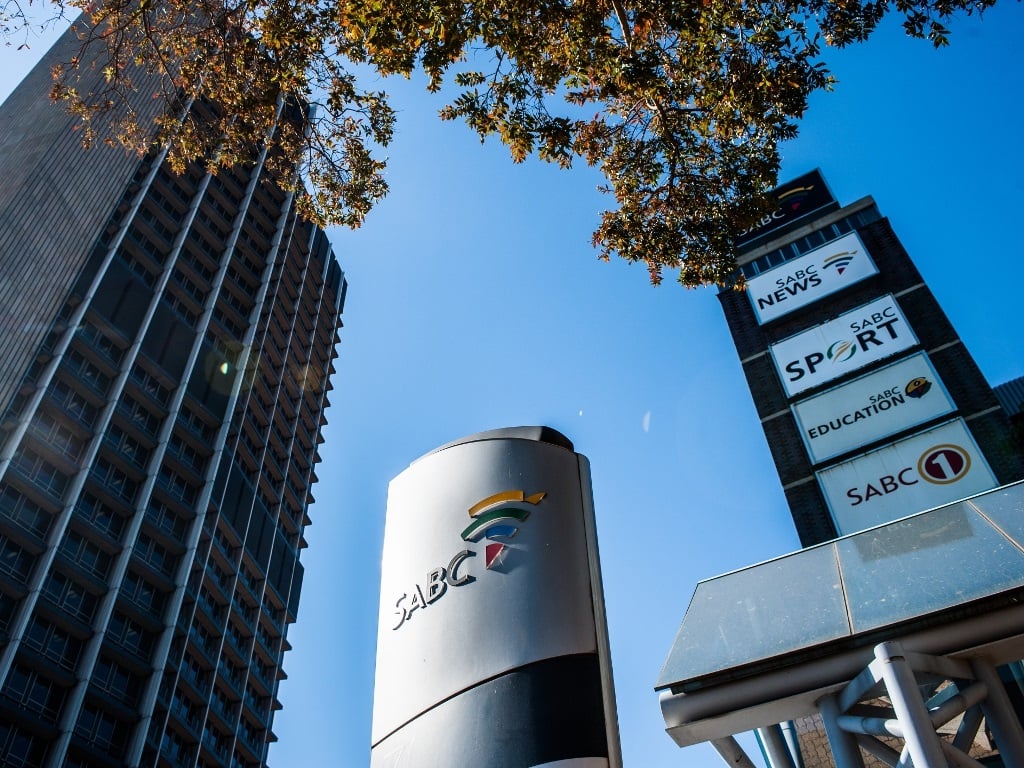


SABC headquarters in Johannesburg.
- Parliament’s Portfolio Committee on Communications is expected to get a briefing by an SABC delegation on its turnaround plan.
- The briefing will include a report on editorial policy in response to interference.
- The public broadcaster is still struggling financially.
The operational and financial challenges at the South African Broadcasting Corporation (SABC) will once again come to the fore on Tuesday as the broadcaster briefs Parliament on its flailing fortunes.
Its troubles may seem current, but the missteps at the public service broadcaster date back over a decade ago.
Its struggles were illuminated in June of 2007 when the SABC, then under Dali Mpofu, had to come before a joint committee of sports and communications to explain the Premier Soccer League’s controversial decision to sell the broadcasting rights to pay-TV channel SuperSport for five years. At that stage, the broadcaster was already seeing revenues decline as advertisers gravitated towards pay-TV and towards digital platforms.
After allowing the lucrative rights to pass them by because of a lack of resources, the public service broadcaster has been before Parliament time and again. Either in search of additional funding or explaining governance failures during the period of its infamous former chief operating officer, Hlaudi Motsoeneng.
Parliament’s Portfolio Committee on Communications is expected to get a two-day briefing by an SABC delegation on its turnaround plan beginning this Tuesday.
With the Covid-19 pandemic forcing the government to reprioritise limited financial resources, ailing state-owned entities (SOE) can no longer hold their breath for billions in financial assistance and this includes the public service broadcaster.
South African National Editors’ Forum member and broadcast expert Kate Skinner said, while the editorial affairs of the SABC have improved significantly since the days of Motsoeneng’s editorial interference, walking off the financial troubles of the broadcaster would be a colossal task.
“They are in a difficult position, because they need to balance the books and they inherited a situation where the books were not balanced, and staff need to be paid. When they got the 2009 government guarantee, the number of staff was already an issue.”
Skinner said if any retrenchments happen, the SABC must ensure that they do not compromise the editorial capacity of the broadcaster, given its vital role in producing quality programming and news, which is all the more critical in a pandemic.
The idea of retrenchment at the broadcaster has already been outright rejected by Communications Minister Stella Ndabeni, complicating any route to a restructuring and, in turn, a turnaround in its fortunes.
Efficient Group economist Francois Stofberg said many South Africans have wondered about the government’s plans for SOEs going forward, but that the pandemic may force the government to choose their priorities better.
“A lot of people have solutions, but what we don’t get right is that we have generational solutions to multi-generational problems. Now we can shift for the betterment of everyone, but we lack the sustainable policies to improve lives.”
- READ | Some 600 job cuts on the cards at SABC
Tutwa Consulting senior associate Azwimpheleli Langalanga said, unlike other SOEs, the SABC played a unique role as a public service broadcaster compared to other entities, as it was at the heart of the governing party’s imperative to reach out to its base supporters in the battle for ideas.
“The problem of the SABC was not different from those of other SOEs. It’s a challenge of leadership. Maybe, where other SOEs have a need to access state resources, and party-political interests get involved, the SABC’s contestation is different, as it is also a strategic entity in society,” said Langalanga.
Langalanga said the Broadcasting Act allows for governance structure, but the proof is in the implementation and, for any further financial assistance to work as intended, the state would need to strengthen the role of Parliament in oversight.
“There is a case to be made for a much leaner broadcaster. But there is bound to be a pushback from unions.”

